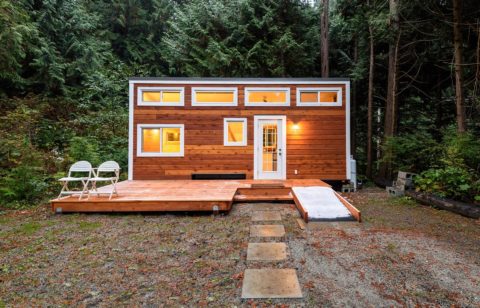Approaching retirement is an exciting time in the lives of many people. However, while this milestone may be a happy one, it’s extremely important to ensure you’re making smart decisions for the long term. Purchasing a house is a long-term commitment and may not be in everyone’s best interest depending upon the specific situation. Consider several different things when working through the last phase of your professional life. Many housing options are available to consider as retirement approaches. For example, you could stay where you are, buy a house, move in with family, buy a condo or lease an apartment, or move into a retirement home. If you think you may buy a house when you’re about to retire, then read on to see what to consider before making that decision.
Considerations for a Home Purchase as Retirement Approaches
There’s a certain level of risk when it comes to taking on a new home purchase while you’re late in your career. The size of the risk matters the most. Moving into a new home can be a very rewarding experience. However, before doing so, it’s best to make sure you’re going to be able to continue living in a comfortable situation financially.
Will You Use Your Current Equity?
If you have a sizable amount of equity in your current home that you would put toward a new house, then you’re in a situation where it may be beneficial to move into a new home. This, of course, depends upon how much equity you have and how expensive of a house you’re looking to buy.
If you’re considering homes in a lower price range than your current residence, then you could be in a stronger financial position as you enter retirement since your payments would likely be lower. You could use your savings to fund your retirement savings or offset expected higher payments on things such as medical expenses. However, if you’re considering expensive home options, you should consider all factors.
What Is Your Current and Future Income Situation?
What sort of money will you be receiving when you’re finished working? There are many ways to receive money in retirement, and if you have a few sources of income that supplement each other then it’s possible to make just as much money as you were when you were employed. Some of the ways to generate income in retirement are as follows.
- 401(k)
- Roth IRA
- Life Insurance
- Annuity
- Pension
- Investment Portfolios
- Part-time work
Take some time to assess how much you’re expected to make each year in retirement. How does that match up with your income right now? In most cases, this will be lower, but there are ways to supplement income during any stage of life.
How Much Time until Retirement
If you estimate how many more years you have until retirement, then you can get a better feel as to what you need to do until then. If you’re looking to buy a house, then the more time you have working the better.
It’s recommended that you have at least five years left of work if you’re looking to make a large purchase such as a home. You should also consider cutting some expenses and living more frugally to adjust to a reduced income. Ideally, if you have around 10 years left before retirement then you’re probably in a good situation to consider a new home purchase since you’d be able to pay a decent amount of the mortgage down prior to living off your retirement savings.
Retirement and Health Considerations
Take a step away from the expense of a mortgage; how capable are you of running a house? Things break, grass needs to be cut, bathrooms need to be cleaned, and so on. You have to do these things yourself or pay someone to do them for you. When you retire, do you expect to be at an age where you’re capable of carrying out some or all of these duties? If not, then you may be taking on a serious burden with all these expenses and the maintenance requirements of a new home.
Another thing to consider is your life expectancy, and it has to be thought about realistically. How old are you right now? Are you healthy? If you’re in your 70s and already have some health conditions, then a 30-year mortgage doesn’t make much sense. The important thing to understand is that this is a very long-term expense and you want to make sure you’re going to be able to get the most out of it.
Considering Your Heirs and Next of Kin
When considering your post-retirement living situation, you should also think a bit about what you’ll leave behind. Purchasing a new home might leave you with little to no equity to pass on to your spouse, children, or other next of kin. In some cases, it may make sense to stay in your current home instead. The familiarity that your family members have with your home may also be a critical emotional factor that adds additional, incalculable value to the property for your heirs. Conversely, if you don’t have heirs to worry about, your post-retirement living options may be easier to determine.
If you think that you may buy a house when you’re about to retire, be sure to assess your financial and physical health to determine if this is the best option. Buying a home right before retirement can have a serious effect on your long-term finances, and it may even affect your family after you pass away. Consider the questions you should be asking as retirement approaches, and make the best decision about your post-retirement living situation for yourself and everyone else in your life.





